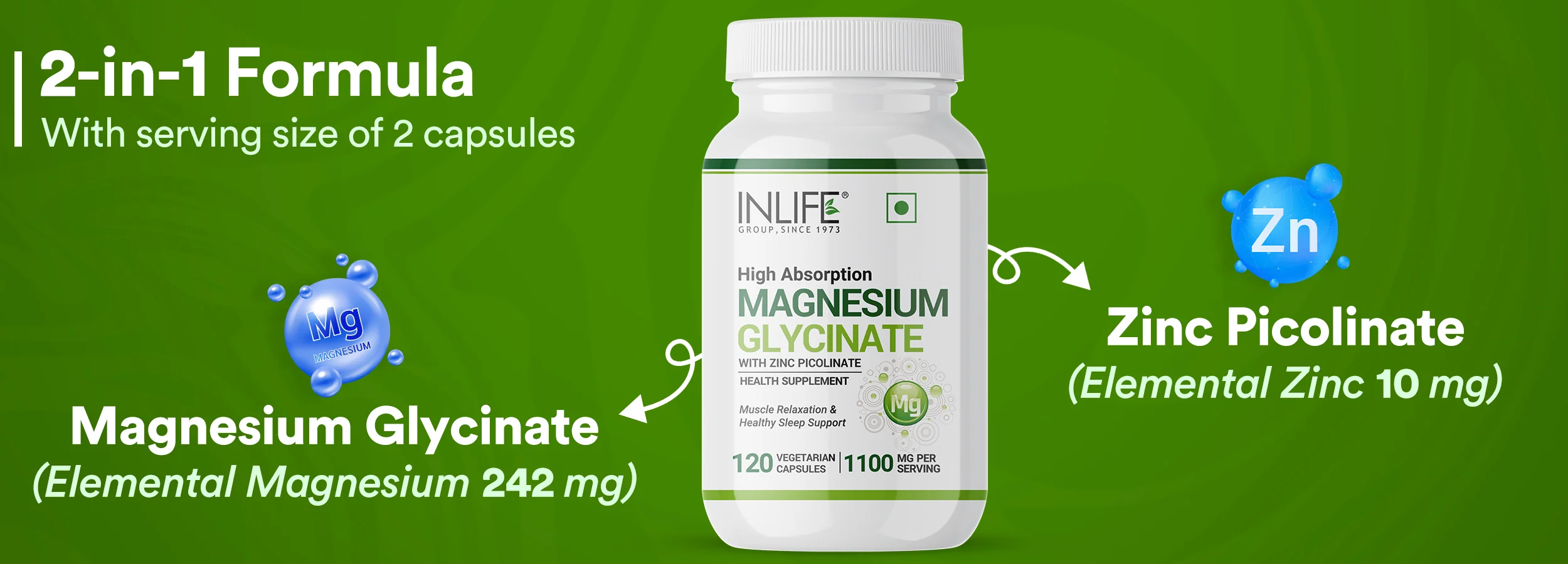
Magnesium Glycinate: A Comprehensive Guide to This Superior Magnesium Supplement
Magnesium glycinate has emerged as one of the most popular and effective forms of magnesium supplementation available today. This comprehensive guide explores everything you need to know about this highly bioavailable magnesium compound, from its unique benefits to proper dosage and potential side effects.
What Is Magnesium Glycinate?
Magnesium glycinate, also known as magnesium bisglycinate, is a mineral supplement that combines magnesium with glycine, an amino acid. This strategic pairing creates a gentle yet highly absorbable form of magnesium that's less likely to cause digestive issues compared to other magnesium supplements.
The Chemical Structure
The molecular structure of magnesium glycinate consists of one magnesium atom bound to two glycine molecules. This unique formation allows for enhanced absorption in the digestive tract and contributes to its superior bioavailability.
Benefits of Magnesium Glycinate
1. Superior Absorption and Bioavailability
Unlike other magnesium forms, magnesium glycinate offers exceptional absorption rates due to its unique properties:
- The glycine component aids in transport across the intestinal wall
- The compound remains stable throughout the digestive process
- The body readily recognizes and utilizes this form efficiently
2. Improved Sleep Quality
Research suggests magnesium glycinate may contribute to better sleep through multiple mechanisms:
- Supports the production of sleep-regulating neurotransmitters
- Helps maintain healthy levels of GABA, a calming neurotransmitter
- May reduce nighttime muscle tension and restlessness
3. Mental Health Support
Magnesium glycinate has shown promising results in supporting mental well-being:
- Helps regulate stress response and anxiety levels
- Supports healthy mood regulation
- May reduce symptoms of depression when used as part of a comprehensive treatment plan
4. Muscle Function and Recovery
Athletes and fitness enthusiasts often turn to magnesium glycinate for its benefits:
- Supports proper muscle contraction and relaxation
- Helps prevent muscle cramps and spasms
- Aids in post-exercise recovery and reduced muscle soreness
Who Should Consider Magnesium Glycinate Supplementation?
Several groups may particularly benefit from magnesium glycinate supplementation:
Athletes and Active Individuals
- Higher magnesium requirements due to increased physical activity
- Enhanced recovery and performance needs
- Greater likelihood of magnesium loss through sweat
Individuals with Digestive Sensitivity
- Those who experience digestive issues with other magnesium forms
- People with inflammatory bowel conditions
- Individuals seeking gentle supplementation options
Mental Health Support Seekers
- People managing stress and anxiety
- Those with sleep difficulties
- Individuals looking for natural mood support
Proper Dosage and Administration
Recommended Daily Intake
The optimal dosage of magnesium glycinate varies based on several factors:
- Adult men: 400-420mg of elemental magnesium daily
- Adult women: 310-320mg of elemental magnesium daily
- Pregnant women: 350-360mg of elemental magnesium daily
Timing and Administration Tips
To maximize the benefits of magnesium glycinate:
- Take with meals to improve absorption
- Consider splitting doses throughout the day
- Evening doses may support better sleep
- Start with a lower dose and gradually increase as needed
Potential Side Effects and Precautions
While magnesium glycinate is generally well-tolerated, awareness of potential side effects is important:
Common Side Effects
- Mild digestive discomfort (rarely)
- Temporary drowsiness
- Changes in bowel movements
When to Exercise Caution
Certain individuals should consult healthcare providers before starting supplementation:
- Those with kidney disease
- People taking certain medications
- Individuals with heart conditions
- Pregnant or nursing women
Interactions with Medications
Common Drug Interactions
Magnesium glycinate may interact with:
- Antibiotics
- Blood pressure medications
- Diuretics
- Muscle relaxants
Choosing Quality Magnesium Glycinate Supplements
Quality Indicators
When selecting a magnesium glycinate supplement, consider:
- Third-party testing certification
- Good Manufacturing Practice (GMP) compliance
- Clear labeling of elemental magnesium content
- Reputable manufacturer credentials
Form Considerations
Magnesium glycinate supplements come in various forms:
- Tablets
- Capsules
- Powder
- Liquid
Comparing Magnesium Glycinate to Other Forms
Advantages Over Other Forms
Magnesium glycinate offers several benefits compared to other magnesium supplements:
- Higher absorption rates than magnesium oxide
- Less likely to cause digestive issues than magnesium citrate
- Better bioavailability than magnesium sulfate
- More stable than magnesium L-threonate
Scientific Research and Evidence
Clinical Studies
Recent research has demonstrated various benefits:
- Sleep quality improvements in insomnia patients
- Reduced anxiety symptoms in clinical trials
- Enhanced muscle recovery in athletic performance studies
- Positive effects on mood regulation
Lifestyle Factors and Magnesium Glycinate
Optimizing Absorption
Several factors can affect magnesium glycinate absorption:
- Dietary fiber intake
- Vitamin D status
- Zinc levels
- Overall digestive health
Complementary Nutrients
For optimal results, consider combining magnesium glycinate with:
- Vitamin B6
- Vitamin D3
- Vitamin K2
- Calcium (in appropriate ratios)
Special Considerations for Different Demographics
Age-Related Considerations
Different age groups may have varying needs:
- Children and adolescents require adjusted dosages
- Elderly individuals may need higher doses due to reduced absorption
- Athletes may require additional supplementation
- Pregnant women should consult healthcare providers
Future Research and Developments
Emerging Studies
Ongoing research continues to explore:
- New potential applications in mental health
- Role in metabolic health
- Impact on cognitive function
- Prevention of age-related conditions
Conclusion
Magnesium glycinate represents a superior form of magnesium supplementation, offering excellent bioavailability and minimal side effects. Its unique properties make it particularly valuable for those seeking improvements in sleep, stress management, and overall health. As with any supplement, consultation with healthcare providers and attention to quality sources remains crucial for optimal results.
This comprehensive understanding of magnesium glycinate helps individuals make informed decisions about supplementation while recognizing both its benefits and limitations. Continued research promises to unveil even more applications for this versatile supplement in supporting human health and wellness.
